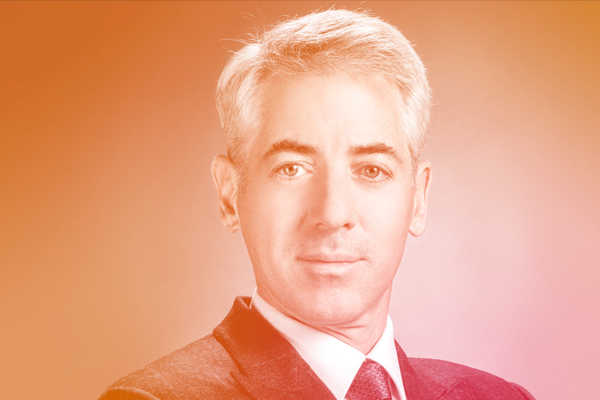
US tech giants are on track: not just to soar through the pandemic, but to structurally lock in their competitive edge well beyond COVID-19. What is more, there will be a tsunami of reallocated capital across the economy, creating huge winners and losers that investors should get ahead of if they don’t want to miss out. So says Scott Galloway — entrepreneur, digital marketing guru and best-selling author of The Four, ahead of his keynote speech at this year’s Sohn Hearts & Minds Investment Conference.
Galloway’s reputation for sharp analysis of big tech puts him in high demand. In 2017, he famously predicted Amazon’s move to take over Whole Foods in the US. He also readily accepts he has been wrong on occasion. And despite being deeply invested in big tech, he wants them broken up by regulators.
Like many of us, the professor of marketing strategy at NYU Stern School of Business marvels at the trading levels of the FAANG stocks, at a time of very low interest rates. “Big tech has become more about the narrative than the numbers. Apple really hasn’t increased its earnings much in 18 months, but its stock price is up 120 per cent. The market looks at Apple and says, where is it going to be in 10 years? We’re willing to take it from a price to earnings multiple that typically averages 12 to 16, to 38 times. We really haven’t seen that before.”
More disturbing is Galloway’s observation that through the pandemic, the tech giants’ position relative to their peers has grown even stronger through viral disruption. “Whenever there is the culling of the herd, the elephants that have survived just have more foliage to feed off. Facebook and Google will likely emerge from this pandemic not with 60c on the digital dollar but 80c, because we are probably going to see one in 10, one in five media companies that compete for those dollars go out of business.”
Amazon feels like it was invented for a pandemic. “Central casting” he quips, “whether it is being deemed an essential retailer, whether it is stimulus that put billions of dollars in the pockets of consumers or whether it is the federally mandated closure of 98 per cent of the competition.” Folk stuck at home absorb massive data loads feeding into Amazon Web Services and watch streaming services. A truly captive market.
“It’s a perfect storm for these guys. Facebook and Google benefit from an oncoming consolidation. I think the incredible froth of multiples is cyclical, I think the increase in their competitive advantage is structural.”
With the possible exception of China’s Ant Financial, which on Tuesday announced the world’s largest IPO at $US34bn ($47.7bn), Galloway says Amazon is now in an unassailable position relative to its competition. He remembers meeting the head of one of the biggest Aussie retailers, who asked him what to do as Amazon headed for Australian shores.
“I said you increase your lobbying by tenfold and you lobby to keep them off your shores, because once they are there you will not be able to compete with a company that is willing to lose 10c, 20c on the retail dollar. Not one of your retailers will respond that aggressively.”
Ruslan Kogan might disagree, but the point is made. It is a feedback loop of infinitely cheap capital, value to the customer and aggressive, forward-leaning investment that no one can match, argues Galloway. Look no further than Amazon’s May 1 earnings call. Investors were expecting $US2bn in earnings. “If you’re a shareholder in Amazon, you may want to take a seat,” CEO Jeff Bezos told them.
“He said: ‘I’m not giving you any earnings, I’m taking all of that money and I’m investing it in the earth’s first vaccinated supply chain’,” Galloway recalls. “There will be different protocols, increased compensation, PPE equipment. A driver, supplier, a retailer, a customer: if you want the most COVID-19 free work environment, there’s only one company in the world that brings you this vaccinated supply chain and it’s Amazon.”
The Amazon backer also believes that tech giants have grown far too powerful and break-up is the only effective solution to oxygenate the economy. “What we have in the US is a small number of companies that have basically overrun government. It’s not only bad for the economy, it’s a key step towards tyranny, where basically government is no longer a countervailing force for private enterprise to co-conspire.”
The Four in Galloway’s book slide towards the four horses of the Apocalypse. Galloway wants the US government to radically overfund regulatory bodies like the Department of Justice and Federal Trade Commission in America and to rewrite the rule book on anti-trust: moving away from a test around consumer harm and prices and back to a test around market power.
“It’s no accident that in the US, traditionally 15 per cent of companies are less than a year old, now it’s less than 7 per cent,” says Galloway. He is hopeful the recent DoJ antitrust suit against Google, which is fairly narrow in scope, will progress, but the election outcome is key.
He points to an unholy alliance between the Trump administration and Google and Facebook. “The odds of a possible break-up are three to five times more likely with a well funded and more thoughtful administration around tech, the Biden-Harris administration. Trump has shown just a mix of inconsistency, incompetence and underfunding that transfers advantage to big tech.”
Galloway applauds Australia’s efforts to take on Google and the tech giants, but warns that such efforts can backfire. “There are more full-time lobbyists working for Amazon in DC than there are senators. That means the legislation ends up being shaped and crafted so that it actually entrenches their competitive position.
“I was on the board of the NY Times for two years and the first thing I suggested in the first board meeting was that we shut off Google. Effectively Google and Facebook have shown up with a dump truck to every media outlet in Western democracy and just taken cash out of it, because they play by a different set of rules and frankly because they’re smarter, have better engineers, they’re more aggressive and because the public tolerate this because of this growing idolatry of innovators.”
Of interest at Sohn will be other question that preoccupies Galloway: What’s next? “Remote: Peloton, Zoom, that’s already happened. COVID-19 is this gigantic earthquake offshore and its basically creating tsunamis, dramatic reallocations of capital that you want to get in front of.”
Galloway is already invested in three picks: “The move from commercial to residential, the move from traditional hospital and doctors’ offices to home and remote health — you are going to see in the US $US4-5 trillion in expenditure funnel through different distribution channels, that is going to create massive winners and losers. And then on campus learning to remote. Those three you want to get in front of as an investor.”
This article was originally posted on The Australian here.
Licensed by Copyright Agency. You must not copy this work without permission.


In yet another fantastic episode with Equity Mates, first-time conference manager Qiao Ma chats with the guys about her incredible first investment, the investment philosophy of core manager Cooper Investors and the investment thesis behind her conference pitch, Shenzhou International.


NYU Stern School of Business Professor, serial entrepreneur and business podcaster Scott Galloway has blasted “sociopathic” big tech and the US government, while outlining the profound implications of COVID-19 for the US economy and its big players.


Australian investors will be very familiar with potential gains that can be created from innovations in the payment system, think Afterpay. In China, the mobile payments market is both enormous and advanced in technical terms, that’s where Yeahka Ltd operates — a top stock choice from Beeneet Kothari of New York-based Tekne Capital Management at the SOHN Hearts & Minds Investment Conference 2020.


Leading US fund manager Bill Ackman has predicted that 2021 will be a “very good” year for the US sharemarket, with a combination of low interest rates, fiscal stimulus and a new president who will not introduce radical policies.


The rise of telehealth and online medicine as a result of the COVID-19 pandemic has been behind the recommendation of New York based fund manager Cathie Wood, for US based telemedicine and virtual health care company Teladoc Health as her stock pick for the 2020 Australian Sohn Hearts & Minds Investment Conference.


When Bill Ackman realised coronavirus was about to run rife in the West he knew he had to do something fast to protect the $US10bn ($14bn) of assets managed by Pershing Square, much of it in restaurant brands that were vulnerable to the economic lockdowns he saw coming. Rather than sell stock, he opted to hedge via credit default swaps.


Halpert's “digital decolonisation” thesis is that entrepreneurs, companies, governments and consumers in developing markets are reclaiming their digital economies and ecosystems from multinationals, and developing indigenous solutions for local problems.


Billionaire investor Bill Ackman bemoaned his losing bet on Warren Buffett’s Berkshire Hathaway during a virtual appearance at the Sohn Hearts & Minds investment conference this week, according to the Australian Financial Review.


Bill Ackman predicts 2021 will be a rewarding year for the equity market and urged investors to "go long", but the Wall Street legend and Pershing Square founder worries that irrespective of Pfizer's vaccine breakthrough, the US faces a grim winter of coronavirus casualties.


Global stocks exposed to the technology boom, whose performance was partially fuelled by the coronavirus crisis, were the big winners from the calls made by top investment minds at the Sohn Hearts & Minds Investment Conference last year.


Leading US fund manager Bill Ackman has predicted that 2021 will be a “very good” year for the US sharemarket, with a combination of low interest rates, fiscal stimulus and a new president who will not introduce radical policies.


Online retail stocks have become the small cap investment story of 2020, according to Todd Guyot, a portfolio manager with Regal’s $320m Australian Small Companies Fund. “We have done well out of the whole online theme of late,” says Guyot, who will be tipping a stock at the fifth annual Sohn Hearts & Minds conference on Friday.


When Bill Ackman realised coronavirus was about to run rife in the West he knew he had to do something fast to protect the $US10bn ($14bn) of assets managed by Pershing Square, much of it in restaurant brands that were vulnerable to the economic lockdowns he saw coming. Rather than sell stock, he opted to hedge via credit default swaps.


Tekne Capital Management portfolio manager Beeneet Kothari says US technology stocks continue to look attractive given their strong earnings outlook and dominant positioning in what he sees as a multi-decade reshaping of economies and business fuelled by COVID-19.


The shock suspension of the Ant Group initial public offering, slated to be the biggest float in history, has left investors reeling, but it could be back up and running within weeks, according to Tribeca Investment Partners’ Jun Bei Liu.


One of the fiercest critics of 'Big Tech', author and academic Scott Galloway, has admitted his bearish call on Afterpay was wrong and warned that America's internet giants are poised to consolidate power following the coronavirus pandemic.


Scott Galloway, outspoken academic and expert on big tech, says "Jedi mind tricks" and "consensual hallucination" are responsible for some huge market valuations, and warns Silicon Valley giants will entrench their dominance in the post-pandemic world.


It has gone down in Wall Street folklore as one of the greatest trades in history – a $US27 million ($37.8 million) bet during the market meltdown in March that returned $US2.6 billion in the space of three weeks. And the mastermind behind it, New York hedge fund titan Bill Ackman, is now bracing for another bout of turbulence.


Wall Street legend Bill Ackman says megacap stocks such as Starbucks will come out of COVID-19 with a bigger moat and a market dominance like never before, and no election outcome will make a difference to the plight of wrecked small businesses.


A little under a year ago, Cathie Wood named Tesla as her top stock pick for 2020. Speaking at the Sohn Hearts & Minds Investment Leaders Conference in Sydney last November, Ms Wood, who runs US technology-focused investment firm Ark Invest, said her bearish case was that the stock price would double by 2024. It hit that milestone less than three months later.


Rory Lucas may have one of the best jobs in finance. As the chief investment officer of Hearts & Minds Investments (HM1), it's his duty to oversee the $780 million portfolio of the best ideas from some of the world's top investors.


Legendary Wall Street investor Bill Ackman will headline the 2020 Sohn Hearts & Minds investment leaders conference this year in a major coup for the event that has raised more than $20 million dollars for medical research since its inception in 2016.